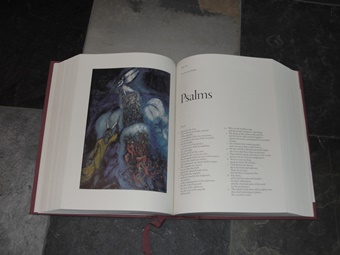THE THEOLOGICAL ENGINEER
Hang it up, already!
Why the telephone game has no bearing on the Bible
By Jeff Laird


Single Page/Printer Friendly

Armchair skeptics like to compare the transmission of the Gospel to an extended session of the party game Telephone. In this game, the first player whispers a random sentence into the second player's ear. That person quickly turns and whispers it to the third player, who does the same to the fourth, and so on. At the end, everyone has a good laugh comparing the final product to the original. Just like how we got the Bible, right?
Not even close.
The idea that change can creep into a message, especially an oral message, isn't so controversial. The problem with this criticism of the Gospel, or the Bible, is that the characteristic flaws which define the Telephone Game don't apply. The transmission of the Gospel, both as a message and as a set of written documents, simply doesn't fit that caricature. What's surprising, at least to me, is how doggedly some skeptics insist that the transmission of the Gospels is "exactly like", or "just like", the Telephone Game.
To explain, consider several versions of this game, as follows:
Version A: Player one whispers a semi-random sentence into the ear of player two, who immediately turns and whispers it to player three, and so forth. After nine or ten hand-offs, the original is compared to the final, and everyone has a good laugh. There are no winners or losers, and the entertainment value is actually increased by mistakes.
Version B: Everyone's car keys are locked into a safe, which uses a short story for a password. Player one writes this text down. This is handed in turn to players two and three, who make their own written copies from the original. These two copies are given to the next four players, then eight, and so forth. At each phase, players may compare new copies to the previous generation, with the option of disqualifying players who make an error. After two or three rounds, the original is destroyed, making players totally dependent on copies to get their car keys back. After 10 rounds, players may attempt to introduce any changes they like, but must convince everyone else to accept them, in the face of the (several hundred) other written copies.
Version C: Player one whisper-sings the lyrics to a popular, well-known song to players two and three. They mutually repeat the words to each other until all three have learnt the words. Players two and three then whisper-sing the lyrics to players four, five, six, and seven. Players one, two, and three sing the lyrics to the others, for comparison. The next set of players are introduced, and players one, two, and three can no longer participate. The lyrics are required to unlock the safe where three fourths of the players' car keys have been locked. After four rounds, the game transitions into version B. This is subtly different from version B, but they merge so quickly that there's little practical difference.
Version Q: Player one dictates various phrases and speeches over the course of several hours. Other players have the option to write these down, or repeat them until they have them memorized. Near the end of the night, player one is removed from the game, as are 90% of those who could orally repeat his words. Player two is then assigned to collect oral recitations and whatever napkins, receipts, etc. other words were sketched on, and tasked with making a written version of player one's entire body of statements. Player two is then removed from the game, and four copies of his work are written out as fast as humanly possible. These copies are separated into four rooms. Player three then collects those, selects the "correct" version of any particular passage, writes down a single version, and destroys the other four, along with all of the napkins and receipts. Players who don't accept this as the "real" message are ejected from the party by player three.
Obviously, Version A makes for a good game. B and C aren't games at all — they're purposeful attempts to relay an accurate message. Q is ultimately fun only for player three, who gets direct personal control over the final version.
Version "A" is classic Telephone, and the skeptic's caricature of Biblical / Gospel transmission: careless, thoughtless, random, and slapdash. Nobody really cares about the content, nobody checks the content, nobody has any stake in whether or not it's transmitted correctly. That's not just unrealistic, it's silly. No part of that applies to early Christianity, but all parts are required to make the Telephone Game a game, and the skeptical attack meaningful.

Continue to Page Two
Image: Kersley Fitzgerald
comments powered by Disqus
Published 11-19-14

